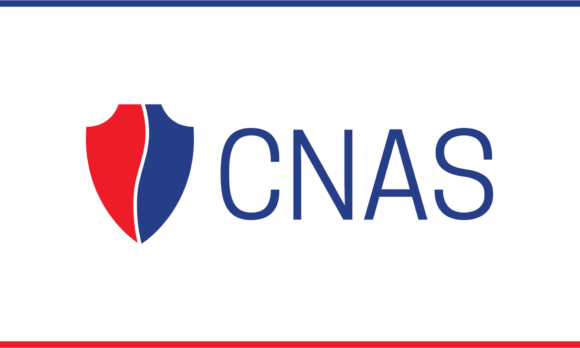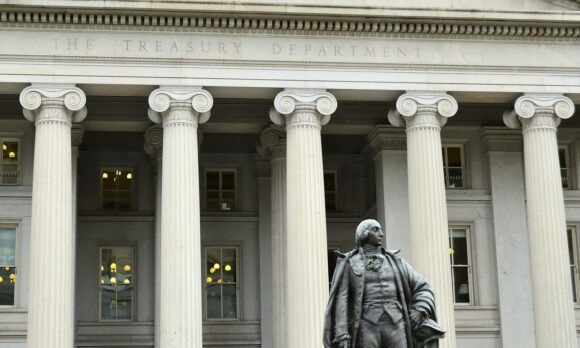January 20, 2021
Sharper: Day One
Analysis from CNAS experts on the most critical challenges for U.S. foreign policy.
The Biden-Harris administration will confront a range of national security challenges from the moment it takes office, including the ongoing COVID-19 pandemic, homeland security, the U.S.-China relationship, and the task of strengthening America's national security workforce. CNAS experts are sharpening the conversation about the risks and opportunities facing the new presidential administration and the 117th Congress. Continue reading this edition of Sharper to explore their ideas and recommendations.
Rising to the China Challenge
In 2020, CNAS released a major independent assessment, “Rising to the China Challenge,” as required by Congress in the 2019 National Defense Authorization Act. The report prescribes a comprehensive approach to competition with China and offers nearly 100 specific, actionable policy recommendations across seven critical vectors of American competitiveness. “The United States and China,” the authors wrote, “are locked in strategic competition over the future of the Indo-Pacific—the most populous, dynamic, and consequential region in the world.”
War Powers: What Are They Good For?
In a CNAS report, experts Richard Fontaine, Loren DeJonge Schulman, and Stephen Tankel explore four legislative pathways available to Congress to influence use of force decisions. "New technologies, the evolution of operational concepts and partnerships with other forces, and the ways in which adversaries now challenge the United States," they write, "further complicate questions about the proper scope of congressional authority over use of force decisions."
Rising to the China Challenge
The United States and China are locked in strategic competition over the future of the Indo-Pacific—the most populous, dynamic, and consequential region in the world....
War Powers: What Are They Good For?
Congressional aspirations to equal partnership in the conduct of American conflicts have long gone unsatisfied....
Managing the National Security Workforce Crisis
The federal national security workforce has entered a perfect storm shaped by workforce demographic trends, short-sighted leadership, slow adaptation to modern challenges, and inflexible talent acquisition and management. In a policy brief for Congress, expert Loren DeJonge Schulman argues that this dynamic must change and Congress should treat civilian human capital as a vital building block in America's foreign policy.
Reforming the Department of Homeland Security Through Enhanced Oversight & Accountability
Nearly 20 years into its existence, the Department of Homeland Security conducts extensive activities to protect national security, but its oversight and accountability functions have not matured with those responsibilities. In a CNAS report, expert Carrie Cordero outlines the pressures placed on the department’s immigration enforcement, border security, and law enforcement components, and recommends that Congress take more substantial steps to modernize the department’s legal authorities and legislate changes that will bolster DHS’s internal controls.
Managing the National Security Workforce Crisis
The federal national security workforce is entering a perfect storm shaped by workforce demographic trends, short-sighted leadership, slow adaptation to modern challenges, and...
Reforming the Department of Homeland Security Through Enhanced Oversight & Accountability
In a new report, Carrie Cordero outlines the pressures placed on DHS's immigration enforcement, border security, and law enforcement components....
Commentaries
America Must Show Unity for the Sake of National Security
"Those leaders taking office this month should see in this shock not just a tragedy but a turning point," Richard Fontaine wrote in The Hill about the January 6 attack on the U.S. Capitol. "We have watched how bitter political division invites danger. Now Americans must show the world what a dose of unity and common resolve can accomplish as we move forward."
The U.S. Needs a New Techno-Democratic Statecraft: Start With 5G
"For too long," Martijn Rasser writes in The Hill, "America’s approach to technology policy has been fractious and reactive. On its current trajectory—with a shrinking share of global R&D spending, human capital shortfalls, and the rapid rise of a near-peer competitor—the United States cannot continue to coast. America’s ability to harness the emerging technologies that will fuel the 21st century economy to the fullest extent possible is at stake."
Biden Inherits a Challenging Civil-Military Legacy
Experts Jim Golby and Peter Feaver write in War on the Rocks: "According to Biden and his team will grapple with all of this through a national security establishment that has changed in some important ways since Democrats last were at the helm. This would be a daunting assignment even in a stable time, but—given the potential threats on the horizon and the other crises Biden inherits—restoring a healthier civil-military balance will be especially challenging. Civilians may have the right to be wrong, but the margin for error in this environment is slim."
America Must Show Unity for the Sake of National Security
The Capitol assault was an attack on democracy itself....
The US needs a new techno-democratic statecraft: Start with 5G
To effectively compete, the United States needs a new strategy and a comprehensive commitment to technological leadership....
Biden Inherits a Challenging Civil-Military Legacy
Joseph Biden and his team will inherit a civil-military relationship as tenuous as any in recent memory....
Biden’s Intelligence Community Must Focus On Climate Crisis
"Not only does climate change create significant security threats to America through multiplying global instability, it is also a major component of the great power competition with China and Russia," Anthony Vinci argues in Breaking Defense. "The incoming Biden administration can do much to address climate change as a national security issue. An important first step would be to make changes in the IC so it has the capabilities and focus to help policymakers preserve American interests."
Modernizing the Department of Homeland Security
"With almost two decades behind it and new leadership in the Biden-Harris administration on the horizon, there is a fresh opportunity to conceive of a forward-looking Department of Homeland Security that best serves the nation’s safety," Carrie Cordero and Katrina Mulligan write in Lawfare.
America’s 2021 Counterproliferation Finance Agenda
"The global proliferation of weapons of mass destruction by state and non-state actors continues to threaten international peace and security," Jason Bartlett warns in a CNAS commentary. "While the United States has led efforts to target the financial networks that support such activity, much work remains to be done. An incoming administration and the Treasury Department’s expected 2021 update to the National Proliferation Financing Risk Assessment is an opportunity for the U.S. government to set an aggressive counterproliferation financing agenda."
Biden’s Intelligence Community Must Focus On Climate Crisis
The incoming Biden administration can do much to address climate change as a national security issue....
Modernizing the Department of Homeland Security
There is a fresh opportunity to conceive of a forward-looking Department of Homeland Security....
America’s 2021 Counterproliferation Finance Agenda
The incoming Biden administration will have an opportunity to strengthen America’s counterproliferation finance regime....
In the News
Featuring commentary and analysis by Richard Fontaine, Duyeon Kim, Martijn Rasser, and Nathalie Grogan.
Far-Right Militias Pose Greatest Threat to US National Security, Experts Say
Far-right militias pose the greatest threat to the national security of the United States, experts tell Newsweek. In stark language, they warned of the increasingly grave risk...
North Korea’s Kim could be planning missile launch to welcome Biden administration
North Korea appears to be taking steps toward a new test of a powerful submarine-launched missile, U.S. weapons experts said, as it steadily dials up the pressure on President...
U.S. Policy on China May Move From ‘America First’ to America & Co.
In tech, Metcalfe’s Law posits that a network becomes more useful in proportion to the number of its users, squared. That means big networks are much more valuable than small ...
Veteran unemployment up to nearly 12 percent amid coronavirus crisis
Veterans unemployment jumped to nearly 12 percent in April as the country’s total jobless rate rose to its highest levels since the Great Depression because of the ongoing cor...
About the Sharper Series
The CNAS Sharper series features curated analysis and commentary from CNAS experts on the most critical challenges in U.S. foreign policy. From the future of America's relationship with China to the state of U.S. sanctions policy and more, each collection draws on the reports, interviews, and other commentaries produced by experts across the Center to explore how America can strengthen its competitive edge.
Subscribe
Sign up to receive the latest analysis from the CNAS expert community on the most important issues facing America's national security.
Thank you for registering! You will receive a confirmation email shortly. All CNAS events are free, open to the public, and viewable from cnas.org/live.
Stay up-to-date with report releases, events, major updates, and announcements from the Center for a New American Security.
More from CNAS
-
CNAS Insights | Trump's Plan B for Tariffs
The administration is already pivoting to a new tariff architecture that will mostly, though not entirely, recreate his previous tariffs....
By Geoffrey Gertz
-
Can a President Unilaterally Withdraw—and Rejoin—the Un Climate Treaty?
This article was originally published in Lawfare. On Jan. 7, the Trump administration withdrew the United States from more than 60 international agreements and organizations, ...
By Mark Nevitt
-
Can China Capitalize on Changing Transatlantic Currents?
This week’s episode of Brussels Sprouts picks up in the aftermath of the Munich Security Conference. The U.S. tone at Munich was notably more conciliatory than last year, as U...
By Andrea Kendall-Taylor & Jim Townsend
-
Afghanistan Under Taliban Rule Makes the World Less Safe
This article was originally published in The Diplomat. The Taliban regime is expanding its provision of national sanctuary to terrorist groups with regional and international ...
By Annie Pforzheimer


















